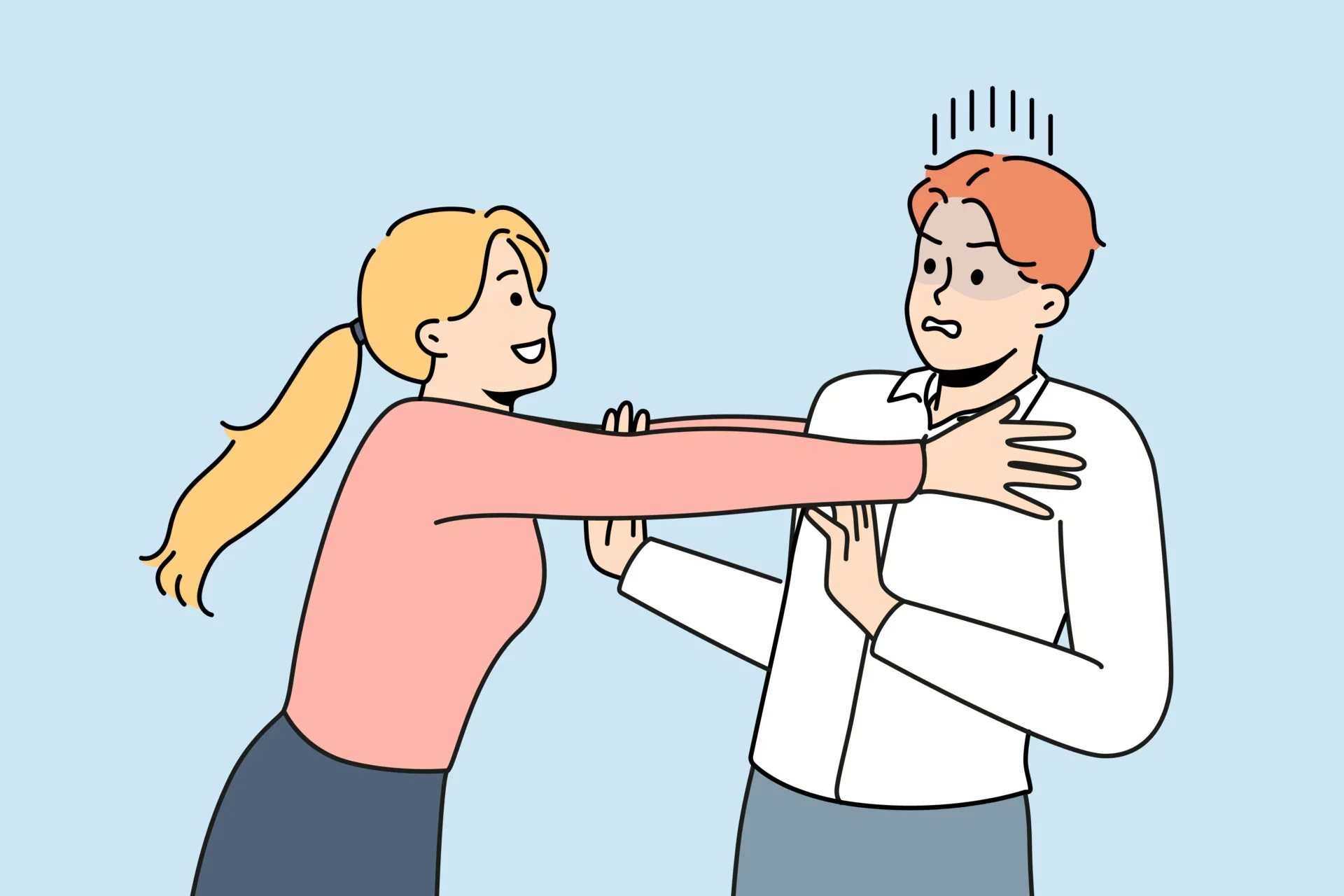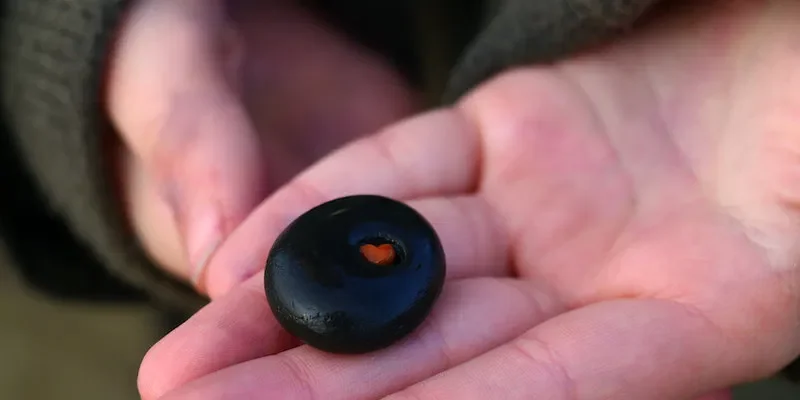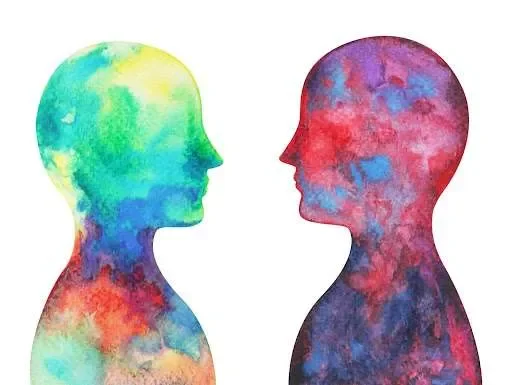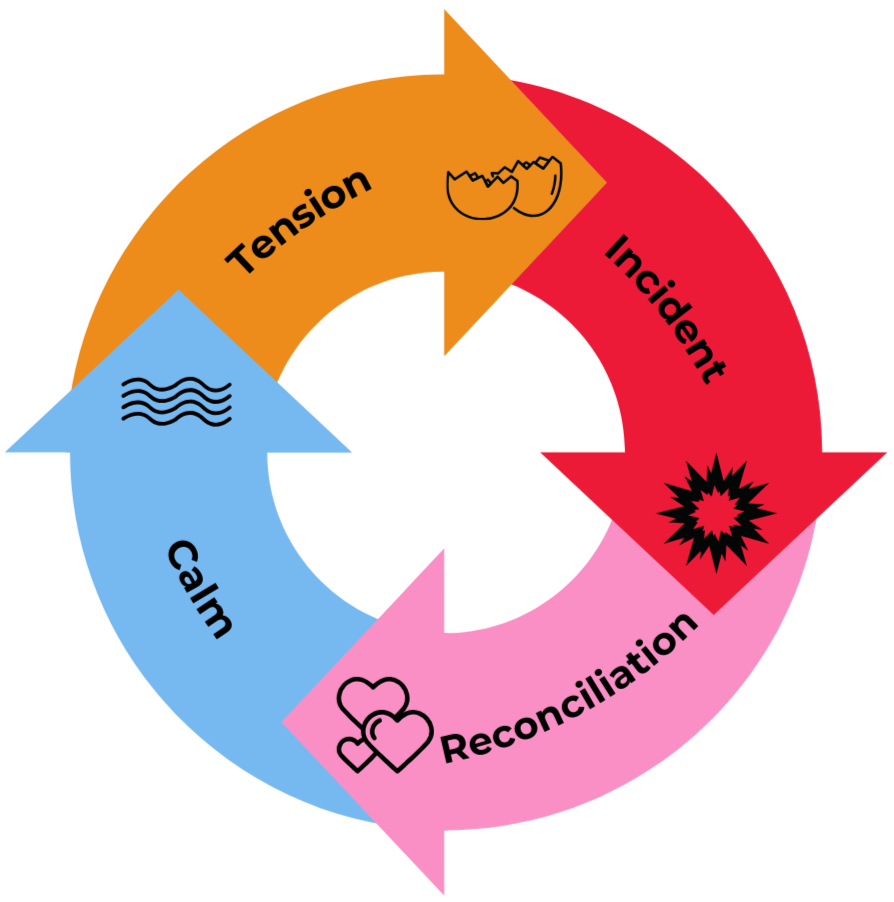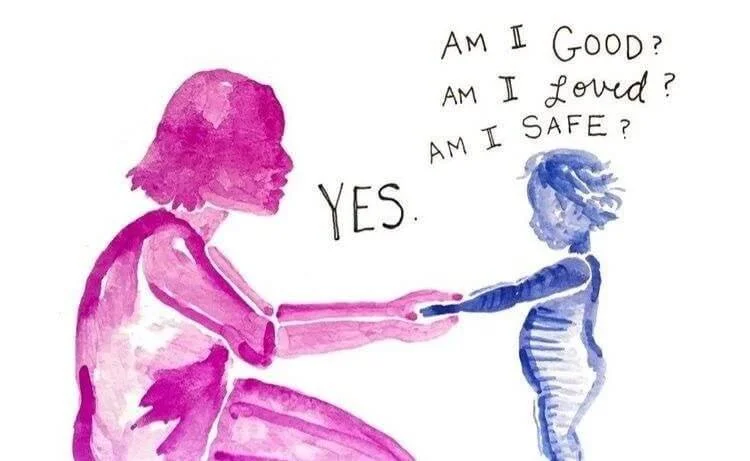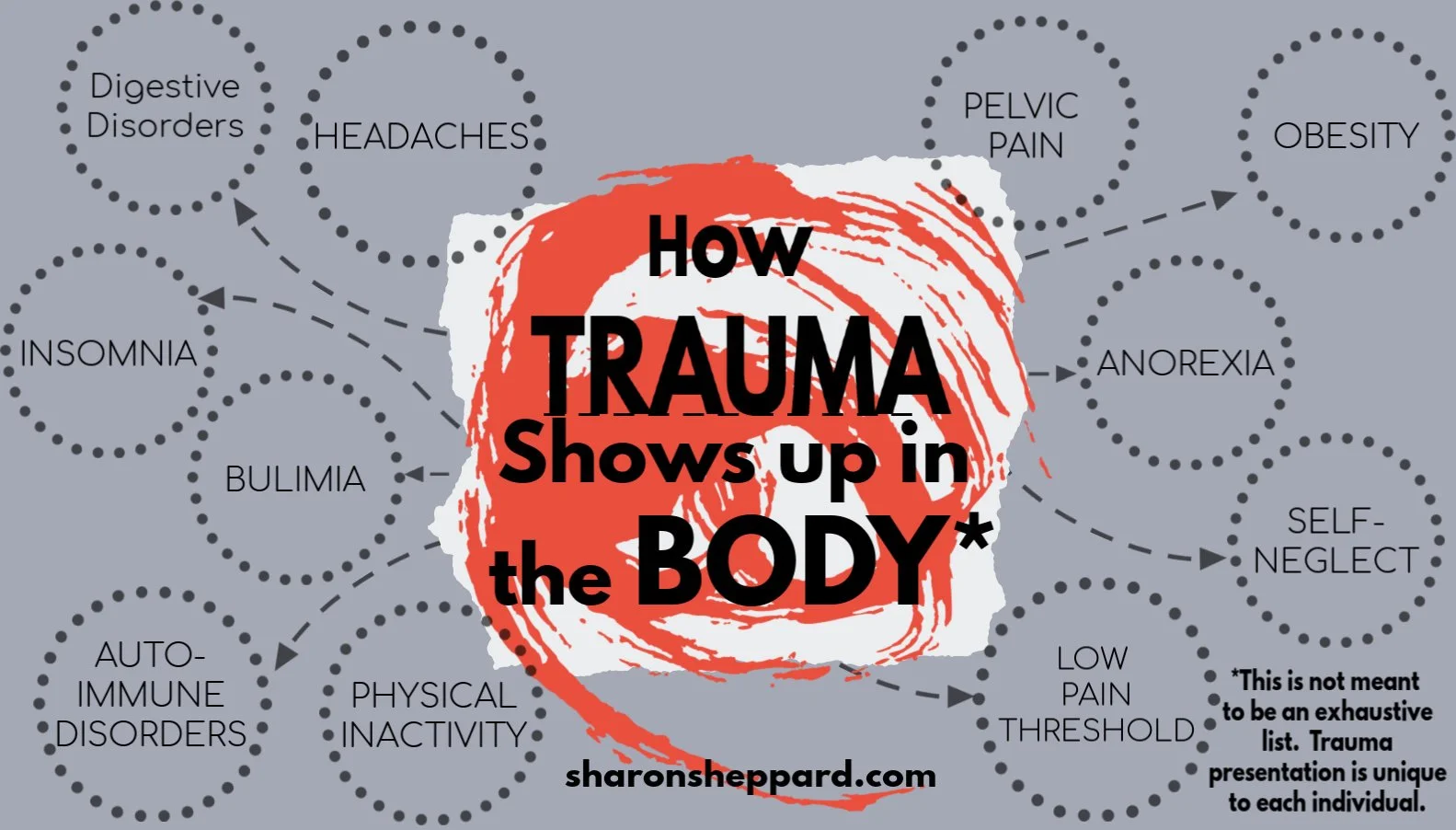Why Do I Keep Ending Up in Inconsistent Relationships?
Many thoughtful, self-aware adults who feel steady and capable in most areas of life find themselves tender and unsure when it comes to relationships. You may work hard, show up for the people you love, and feel grounded in your day-to-day life, yet still feel pulled toward the same painful patterns. If you find yourself longing for consistent love yet repeatedly choosing emotionally unpredictable partners, you are not alone.
In my eight years as a somatic and attachment-based therapist and Registered Clinical Counsellor, I have supported adults across British Columbia, both in person and virtually, who feel caught in this cycle. My training in Sensorimotor Psychotherapy and attachment-focused approaches shapes much of the work I do, and I often see the same tender themes arise. These patterns are not signs of weakness or failure. They are reflections of what the nervous system learned long before you had words for any of this.
You deserve relationships that feel steady and nourishing. In this article, you will learn why anxious attachment patterns form, why inconsistency can feel addictive, why healthy partners may feel unfamiliar at first, and how to begin breaking anxious attachment patterns with compassion and clarity.
Why high-functioning people often feel anxious (and how therapy can help)
From the outside, you might look like you have it all together. You’re capable, reliable, and people often turn to you for support. But on the inside, it can feel very different. Many high-functioning people quietly live with anxiety, self-doubt, or a sense of emptiness that no one else can see.
The Hidden Side of Being “High-Functioning”
High-functioning anxiety doesn’t always look like panic attacks or visible distress. It often shows up in subtler ways, like:
lying awake at night replaying conversations
over-preparing for work or social situations
feeling like you’re always “on” for other people
hiding your struggles because you don’t want to be a burden
Because you’re so good at pushing through, others may never realize how hard you’re working just to keep things together.
Grounding in Daily Life: Somatic Tools to Stay Present When You Can’t Get Outside
Have you ever noticed how calm and steady you feel when you’re in nature? Maybe it’s sitting by the ocean, walking in the forest, or simply breathing in fresh mountain air. For many people, these moments bring a sense of grounding and ease.
But what about the times when you can’t step outside—when you’re stuck at a desk, living in a busy city, or traveling as a digital nomad? The good news is that you don’t have to wait for the perfect setting. Your body itself holds powerful tools for grounding, presence, and calm. This is where somatic therapy comes in.
Why Somatic Therapy Helps When Talking Isn’t Enough
Have you ever thought, “I understand my patterns, but I still can’t seem to change them”? You’re not alone. Many people come to therapy feeling self-aware, yet stuck. They know the story of their anxiety, stress, or trauma—but their body still reacts as if the past is happening right now.
That’s where somatic therapy comes in.
Why You Keep Going Back: Understanding Intermittent Reinforcement, Attachment Wounds, and the Healing Power of Somatic Therapy
Have you ever found yourself stuck in a relationship—romantic, family, friendship, or even work-related—where things feel unpredictable? Maybe sometimes this person is loving, available, and kind… and other times they’re cold, distant, or even cruel. You might tell yourself “this time will be different” or feel a sense of hope every time things get good again. But then, just like before, the rug gets pulled out from under you.
This confusing pattern can be heartbreaking, and it’s often tied to something called intermittent reinforcement.
Healing Through the Body: An Introduction to Sensorimotor Psychotherapy
When we think about therapy, we often imagine talking through our problems. But sometimes, words alone don’t fully capture what’s going on inside. Many emotional wounds, especially those tied to trauma and early relationships, live deeply in the body.
The Power of Working with Your Inner Child in Therapy
You may have heard a lot of talk lately about the concept of working with the "inner child" or the child part in counselling. This aspect of our inner world plays a crucial role in the therapeutic process, as it connects us with our past, influences our present, and helps shape our future. In this post, we’ll explore what the inner child is and why it's essential to work with it in therapy. By understanding this dynamic component, you can uncover the keys to personal growth, healing, and a more fulfilling life.
Unveiling Toxic Positivity: The Surprising Coping Mechanism That Hinders Emotional Growth
Life can be a wild ride, filled with ups and downs. We're often told to stay positive and put on a happy face, but what if I told you there's a catch? Enter toxic positivity—the sneaky habit that can actually impede our emotional growth. Today, let's dive into the world of toxic positivity, how it can be a coping mechanism that blocks the processing of difficult emotions, and how somatic counselling can help break free from its grip.
Let's get real about toxic positivity. It's like that friend who tries to cheer you up by saying, "Just smile, everything will be fine!" Well-intentioned as it may be, constantly brushing off our negative emotions can do more harm than good.
Exploring the Impact of Childhood Attachment on Romantic Relationships: Transformative Somatic Counselling in Squamish, BC
If you’ve stumbled on this blog post, it may because you’re noticing repeating unhealthy patterns in your romantic relationships. Today, we unravel the complexities that shape our relationship patterns, paving the way for healing and growth. If you're seeking a counsellor in Squamish, BC, or virtual counselling services anywhere in BC, I provide sessions in both my downtown Squamish office or virtually from the location of your choice. Let's navigate the intricacies of your relationship dynamics, fostering healthier and more fulfilling connections.
Our early experiences lay the groundwork for how we perceive and engage in romantic relationships. Childhood attachment, as theorized by psychologist John Bowlby, plays a significant role in shaping our self-beliefs and interactions with others. Understanding our attachment styles enables us to navigate the complexities of adult relationships.
Healing Trauma: Embracing the Wisdom of the Body
Trauma is an experience that can leave us feeling lost, overwhelmed, and disconnected from ourselves and the world around us. While traditional talk therapy has its place in addressing trauma, we are beginning to realize that healing goes beyond words alone. Trauma resides not only in our minds but also in our bodies, and acknowledging this somatic aspect opens up new pathways for effective healing. Let’s explore how trauma becomes embedded in our bodies and how a somatic approach to counselling, such as sensorimotor psychotherapy, can guide us on a profound journey towards healing.
We've all experienced moments where a memory or a situation triggers an intense physical reaction—an increased heart rate, a knot in the stomach, or a sudden surge of anxiety. These bodily responses are not random; they are a testament to how our bodies hold the imprints of trauma. Bessel Van der Kolk, a renowned psychiatrist and trauma expert, has shown us that trauma disrupts our natural response systems, leaving its mark on our nervous system, brain functioning, and even our physical sensations. While traditional therapy often focuses on exploring trauma through conversation, it may overlook the vital role our bodies play in the healing process. Somatic counselling approaches invite us to reconnect with our bodies and listen to the wisdom they hold. By integrating body-oriented techniques, we can tap into the profound power of our physical selves.
Mental Health in a Mountain Town
The Sea to Sky corridor is home to a vibrant outdoor community where likeminded people come together to enjoy everything the surrounding landscape has to offer. However, while there isn’t a shortage of activities to enjoy in this part of the world, living in a town where everyone excels in their respective sports can create a constant sense of comparison and self-doubt. People may find themselves constantly evaluating their skills and achievements against their peers, leading to anxiety, depression, and a diminished sense of self-worth.
Professional athletes may be particularly prone to being affected by the emotional ups and downs of living in this environment, particularly as their careers draw to an end. Transitioning out of a professional athletic career can be emotionally challenging and retirement often means saying goodbye to a defining part of one's identity and adjusting to a new way of life. The loss of routine, camaraderie, and the adrenaline rush that came with their sports can leave athletes feeling lost and without purpose. Although loss of identity, depression, and anxiety during this transition is common, it is not a subject that is often discussed. Finding support during these transitional periods is essential. Counselling provides a valuable resource in helping people navigate the emotional challenges they face.
Are You Living in the Present or Just Avoiding the Past?
Practicing intentionally living in the present is a necessary step towards contentment. However, doing so without first looking back and working through past experiences will inevitably lead to surface-level coping strategies. Whether we want to acknowledge it or not, our past greatly affects our present. The way we formed attachment to our early caregivers, our coping strategies to create safety in our environments in childhood, events which affected us on a subconscious level - these all create behaviour patterns in adulthood which, if not explored and healed, can lead us to repeating the same unhealthy patterns in relationships and living in a state of dissociation from our core selves.
Somatic Counselling in Squamish: How Sensorimotor Psychotherapy Can Help in the Processing of Trauma
Unlike other life experiences, trauma is stored in the body. When we experience a traumatic event, two things happen simultaneously. First, our animal reflexes are activated. This means that we experience either a fight, flight, freeze, or fawn state. At the same time, our prefrontal cortex (or the cognitive center of our brain) goes offline and we dissociate. The result is that when we try to recall a traumatic experience, the memory may feel disjointed, fuzzy, or confusing. More importantly, the trauma memory often expresses itself somatically (in the body) through a variety of symptoms that can be triggered by neutral-seeming events. This is because when we are faced with a situation that reminds us of the trauma on some level, although our rational self may recognize that we are not in danger, our brain reacts as though there is real and present danger just like when the original trauma occurred.
Early Attachment and Adult Relationships: There is a Link!
Attachment theory is a psychological model that explains how our early relationships with caregivers shape our emotional and social development. It suggests that the way we form attachments with others in adulthood is based on the type of attachment with primary caregivers that we experienced in childhood.
Attachment theory helps us understand why some relationships are more successful than others, and why some people are more prone to anxiety or depression. It also provides insight into how different types of attachment styles can affect our behavior in relationships, such as those who experience anxious, avoidant, secure, or disorganized attachment styles.
Exercise Your Way To A Happier Mood: The Effects Of Exercise On Mental Health
It is no secret that exercise has a plethora of physical health benefits. However, what is often overlooked are the mental health benefits of exercise. Exercise has been shown to be an effective treatment for depression, anxiety, and other mental health conditions.
There are a number of ways in which exercise can improve our mental health. For one, exercise helps to reduce levels of the stress hormone cortisol. Cortisol is a hormone that is released in response to stress and has been linked to a number of mental health conditions, such as anxiety and depression.
Toxic Relationships: Why Inconsistency Can be Addicting
Let’s talk about trauma bonds. Intermittent reinforcement is when rewards are handed out intermittently and unpredictably. Researchers found that rats pressed a level for food more steadily when they did not know when the next food pellet was coming than they did when they always received a pellet. The same principle is true for human relationships. We can actually become addicted to seeking affection from our partners when it is handed out inconsistently in this way.

